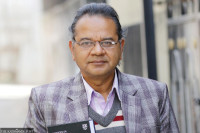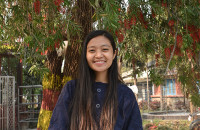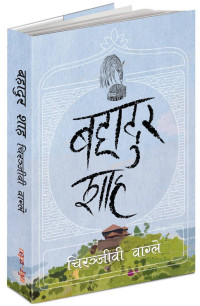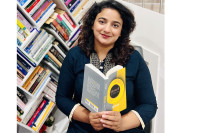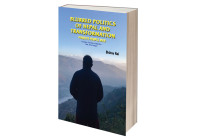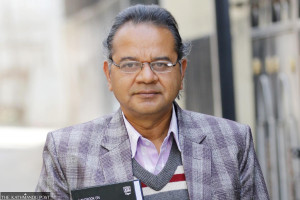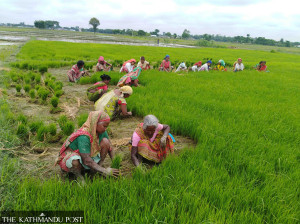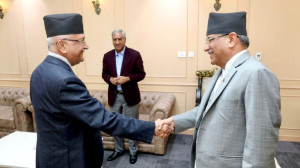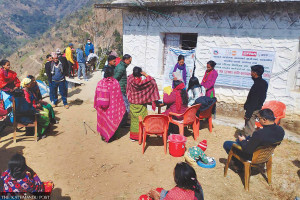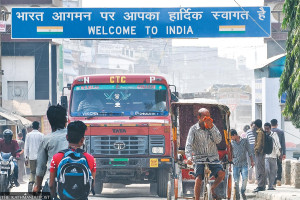 16.12°C Kathmandu
16.12°C KathmanduBooks
Greater inclusivity would make our literary scene more dynamic
Sarita Sah shares how reading has influenced her journey in theatre and film.
Aarati Ray
Sarita Sah is a well-known figure in the Nepali film and theatre scene, boasting an impressive 11-year career as an actor, writer, and director. Her portfolio spans feature films, short films, and advertisements. Additionally, she has lent her talents to directing and writing short films and creating public service announcement videos addressing social issues. Beyond the silver screen, Sah has directed theatrical plays like ‘Loo’, ‘Kashidevi’ and ‘Dhakiyame Nagarikta’, among others.
Not only that, but Sah is the founder of Sarita Foundation, an organisation dedicated to raising awareness about socioeconomic, political and gender issues through storytelling tools, techniques and the media. Her involvement in the Nepal Women Film Fellowship, facilitated by Onion Films and focusing on women's issues, showcases her dedication to societal concerns. As an alumna of Shilpee Theatre, she actively collaborates with local artists, employing various techniques and media.
Her short film ‘The Notebook’ received a ‘Special Award’ at the 3rd International Women’s Film Festival on November 25, 2023. Recently, she gained acclaim for her leading role in the play ‘Gulaf’ by Ram Hari Dhakal, alongside Deeya Maskey. ‘Gulaf’ is set for international shows in Norway from May 22 to 24.
In an interview with Post’s Aarati Ray, Sah shared her deep love for books and how they influenced her journey as a theatre artist.
How did you develop a love for reading?
I’ve been drawn to reading since my childhood. It’s hard to explain why, but I just enjoyed reading stories from a very young age. Our village in the Mahottari district has a small shop, and my parents used to bring paper sacks for packaging. Amid those papers, I discovered small storybooks and half-torn novels, and they felt like treasures to me. Sometimes, when I sat in the shop, I stumbled upon discarded papers with exciting stories or parts of novels. While customers waited for their items to be packed, I would spend my time reading those papers. This started when I was in second grade. I also used to “borrow” Nepali books from my brothers, who were in tenth grade, and read the stories. That’s how it all began. Later, when I moved to Kathmandu, my passion for reading continued to grow.
What genres of books do you enjoy?
With my involvement in theatre, my reading habits have expanded significantly. I appreciate books from various genres, such as fiction, nonfiction and autobiographies. Given my theatre career, plays and dramas have become my absolute favourites.
What are you reading right now?
As I have been busy preparing for the play ‘Gulaf’, my most recent read is ‘Yasodhara’ by Haribol Kafle. Our play is based on this novel that brings to light the often-overlooked story of Yasodhara, the woman married to Siddhartha Gautam, who later became Buddha.
I read the novel to understand the play and its characters better. Through the story, I got to know Yasodhara, a woman we know very little about. Sometimes, she isn’t even given a name; she’s simply called Rahul’s mother. This book unveils Yasodhara’s side of the story—her pain and struggles when Siddhartha, the person she loved since childhood, left her on the same day she gave birth. It’s a powerful reminder that every story holds different perspectives.
What is a book that influenced you significantly?
There have been many books that have shaped my thoughts and perspectives on life. However, if I had to pick one, it would be ‘Dulari’ by Muna Chaudhary. It’s ending left a lasting impact on me. I used to work with individuals from the Musahar community. This book also has characters from the Musahar community, and it helped me understand them better. It touched me so greatly that I even wrote a note for all the workers in my field. I don’t know when, but I aspire to turn the book into a movie.
How challenging is it to adapt a book into play?
Books have no restrictions—you can write a thousand pages. However, a play faces the constraint of time; usually, it can only run for a maximum of two hours. The difficulty lies in adapting a book rich in details, characters and stories, into a concise one or two-hour performance.
I adapted Nayan Raj Pandey’s book ‘Loo’ into a play some time ago, and it was tough. Every character and detail felt crucial; I was in a dilemma as to what to include and what to leave out. If one attends a play expecting to see everything from a book, they will miss the enjoyment of the theatrical form. The magic of the play is in the way it can portray the story of the book and give life to the characters.
What are your thoughts on the current state of Nepali literature?
On the outside, things in the literary scene seem okay, but there’s much work to be done. Many untold stories are waiting to be shared, especially from underrepresented backgrounds. Narratives from Madhesh also need more mainstream attention. Our country is rich in languages and cultures. The beauty and standard of Nepali literature would flourish by representing all cultures and languages. More literature should emerge in regional languages, each carrying its unique identity. We need a more inclusive representation.
How important is the habit of reading books in the current time?
As actors are storytellers, for artists like me, reading books is beneficial for understanding characters from different worlds, portraying emotions and improving our memory for when we need to learn our lines. Aside from artists, it is equally essential for the younger generation, deeply attached to social media and the digital world, to broaden their perspectives beyond the screen. In a time when attention spans and human connections are diminishing, reading books becomes crucial for fostering concentration and staying grounded.
What advice would you give to someone starting their reading journey?
For those just starting, it’s advisable to read a few selected and essential books aligned with their interests. This helps in establishing a reading routine and improving concentration. Starting with lighter books and gradually progressing to more information-packed ones is a good approach.
Sarita Sah’s book recommendations
Yasodhara
Author: Haribol Kafle
Publisher: Lipi Books
Year: 2023
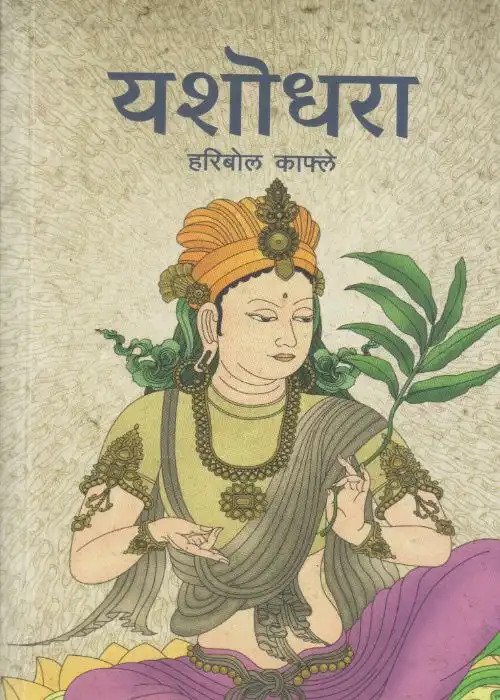
This book provides a fresh perspective on Yasodhara’s experience. It explores how Siddhartha’s decisions impacted Yasodhara and sheds light on the often-ignored pain and suffering she endured.
Dulari
Author: Muna Chaudhary
Publisher: Shangri-La Books
Year: 2019
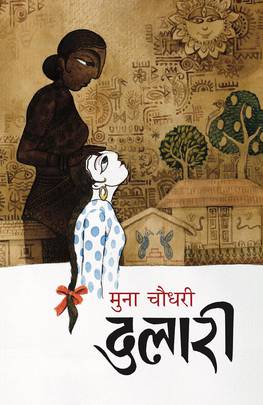
‘Dulari’ portrays the challenging lives of people grappling with poverty in Tarai. I admire the way the author systematically unravels the unjust treatment that society metes out on individuals from marginalised communities.
Loo
Author: Nayan Raj Pandey
Publisher: Sangri-La Books
Year: 2012
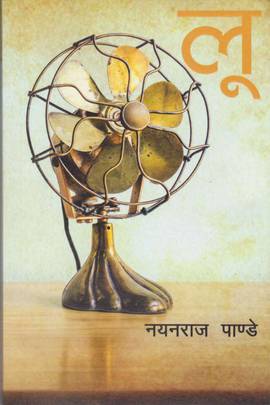
Pandey highlights the challenges faced by people living in border areas, who are overlooked by most of us. I love the story so much that I even directed a play inspired by this book.
Kanchha Maharani
Author: Sheeba Shah
Publisher: Shangri-La Books
Year: 2020
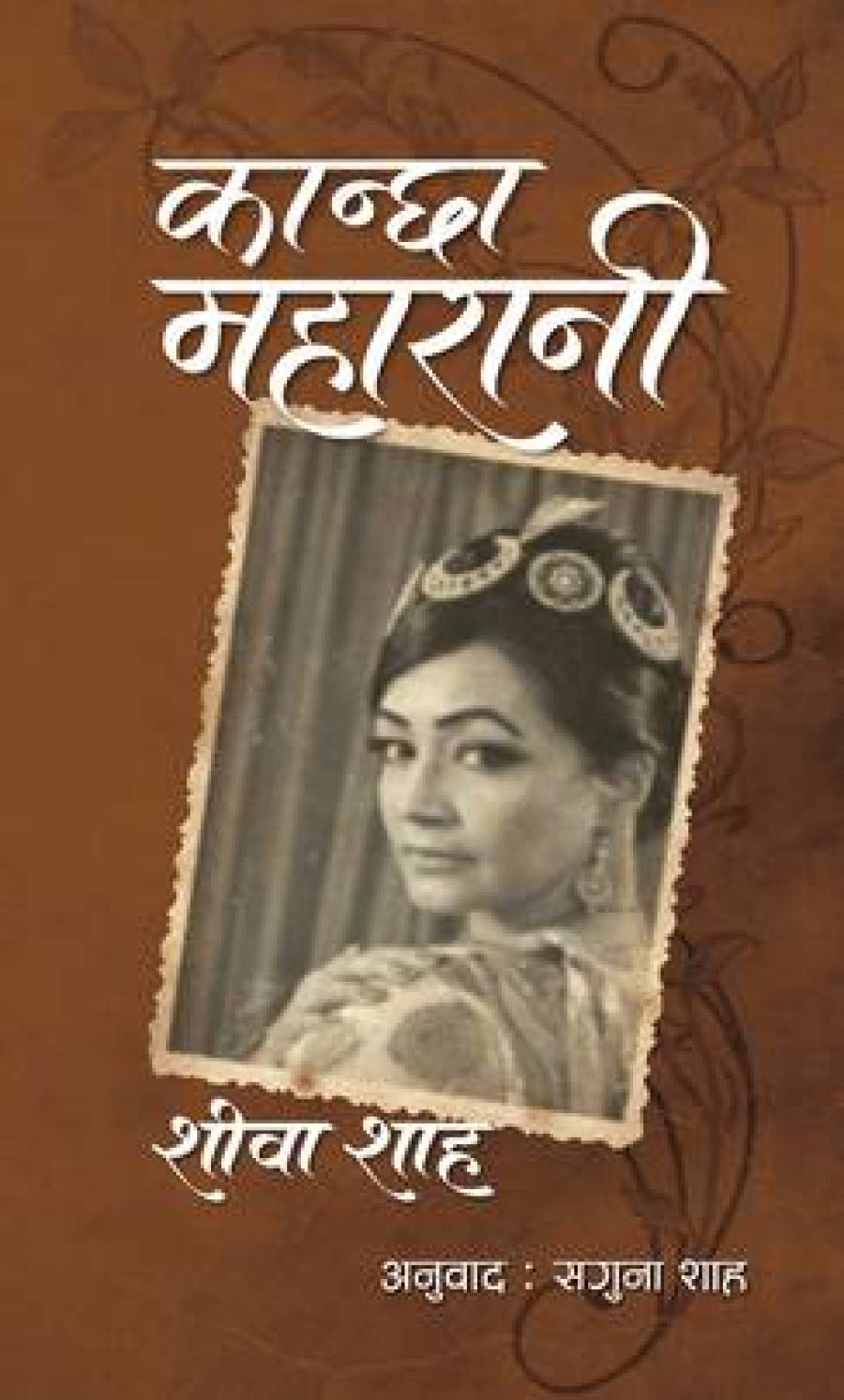
‘Kanchha Maharani’ tells the story of Queen Rajendra Lakshmi and allows a reimagining of history from a woman’s perspective. If you are into counter-narratives and feminist stories, this is a must-read.
Taap
Author: Sharada Sharma
Publisher: Shangri-La Books
Year: 2012
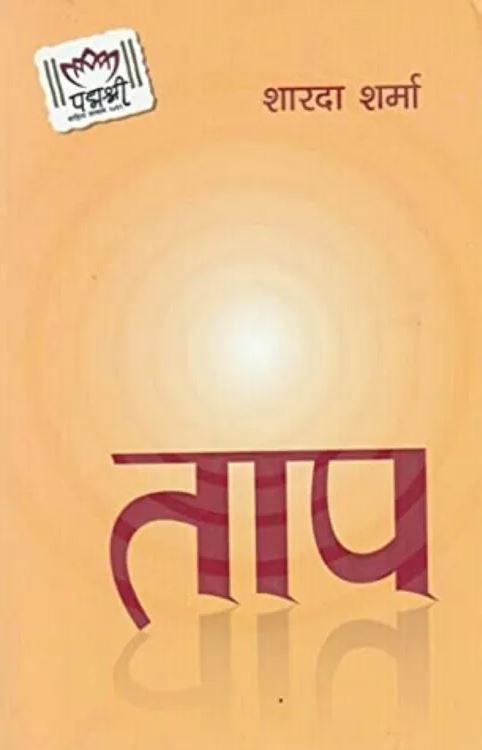
We can learn a lot from the sufferings faced by the characters in Sharada Sharma’s ‘Taap’. I loved the portrayal of feminist issues in a relatable and realistic manner in this book.





